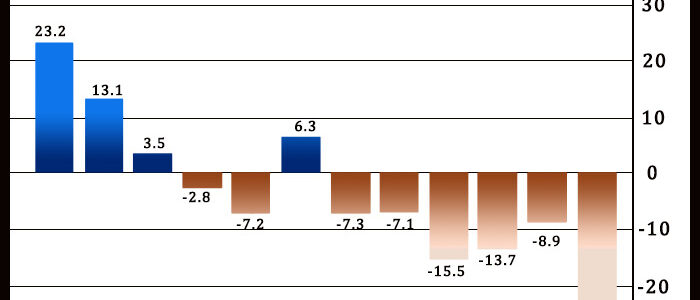
Philly Fed Index Unexpectedly Shows Steep Drop In February
Philadelphia-area manufacturing activity unexpectedly contracted at an accelerated rate in the month of February, according to a report released by the Federal Reserve Bank of Philadelphia on Thursday.
The Philly Fed said its diffusion index for current activity plunged to a negative 24.3 in February from a negative 8.9 in January, with a negative reading indicating a contraction. Economists had expected the index to inch up to a negative 7.4.
With the unexpected nosedive, the Philly Fed Index dropped to its lowest level since hitting a negative 43.2 in May 2020.
The unexpected slump by the headline index partly reflected an accelerated contraction in new orders, with the new orders index falling to a negative 13.6 in February from a negative 10.9 in January.
The shipments index also declined to 8.7 in February from 11.1 in January, while the number of employees index slid to 5.1 from 10.9.
While the report also showed the prices received index tumbled to 14.9 in February 29.9 in January, the prices paid index inched up to 26.5 from 24.5.
Looking ahead, the Philly Fed said most of the survey’s future indicators were positive but low, suggesting tempered expectations for growth over the next six months.
The diffusion index for future general activity fell to 1.7 in February from 4.9 in the previous month.
“Weakness in manufacturing has been persistent amid a weakening in the global economy, past appreciation in the U.S. dollar and higher interest rates stifling demand for goods,” said Gurleen Chadha, U.S. Economist at Oxford Economics.
She added, “With flaring worries of the economy falling into a mild recession this year, the worst is likely ahead for manufacturing.”
A separate report released by the Federal Reserve Bank of New York on Wednesday showed a significant slowdown in the pace of contraction in regional manufacturing activity in the month of February.
The New York Fed said its general business conditions index soared to a negative 5.8 in February from a negative 32.9 in January. Economists had expected the index to jump to a negative 18.0.
Source: Read Full Article